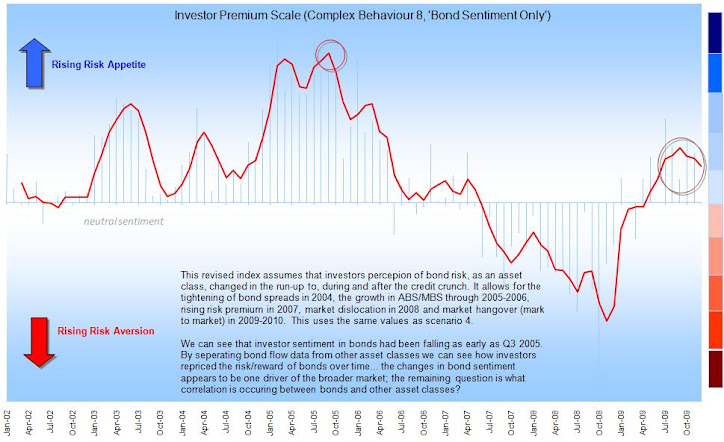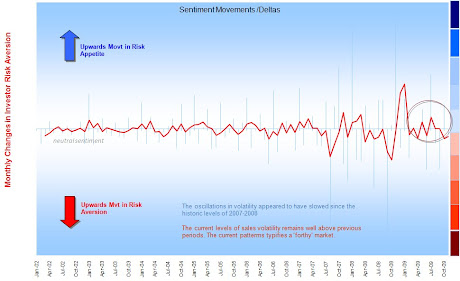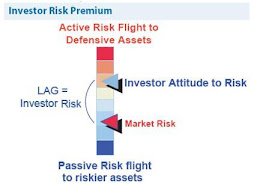You may think 'who cares'.. and in truth the advent itself should be no cause for alarm - indeed many observers; and those involved in its technology, view it as a means to reduce market risk by reducing the size of single trades and minimising human error and morale hazard.The race is on: financial centres in the East are competing with the New York Stock Exchange (NYSE) and London (LSE) to process faster trades; banks and financial firms are also competing to develop faster and more clever HFT and algorithm programmes and trading platforms to process trades faster. There is huge scope for market manipulation here and for me sentiment risk rises because so many more trades can be processed per second. I heard the LSE can process about 30-40 trades per second; the NYSE can process approx 600. I also recall back to the server problems at the LSE this year: these were attributed to software issues. How many more system risks can we expect as the financial system winds up the 'clock'??
Moreover those who can process faster will become leaders: it's worth bearing this in mind when setting your asset allocation as it's a risk that is wholly unreflected in a stock price. Will London fall behind NY and Asia and what will be the impact of that on the investor? Only global corporations are able to diversify country risk - us investors tend to have to trade locally. This all encourages much more focus on liquidity risk and the movement/flow of assets at country vs global level. It also creates a huge imbalance between the common investor and the financial sharks, the Big institutions that still dominate (according to multiple research) by trading more volume faster. This is one issue for investors but is it my biggest fear?
No - my biggest fear about HFT is it's untested nature - like the butterfly effect - a minor change in any system can be amplified down the line. We simply don't know what effect HFT will have.. and when.. is HFT capable of accelerating market-wide risk (sometimes known as contagion or systemic risk). Ultimately could HFT process a full market drawdown in a single day, hour, minute....?
A market 'drawdown' is sometimes called a bear market - when the majority of stocks are in a price 'free-fall': when everyone wants to SELL and no one wants to BUY. If the NYSE can trade 590+ trade per second then how quickly could past drawdowns have ocurred and did this contribute to the unprecedented rate of decline in the credit crunch through 2008..?These thoughts are not based on specific research or any regression analyses but the gaps in what I don't know about HFT - what Taleb might refer to as anti-knowledge. It's simply a question - make up your own mind - food for thought to know what you might be up against the next time you make an investment. Where you trade may become as important as what you trade..
Agree; disagree - it's all good.




No comments:
Post a Comment
Note: only a member of this blog may post a comment.